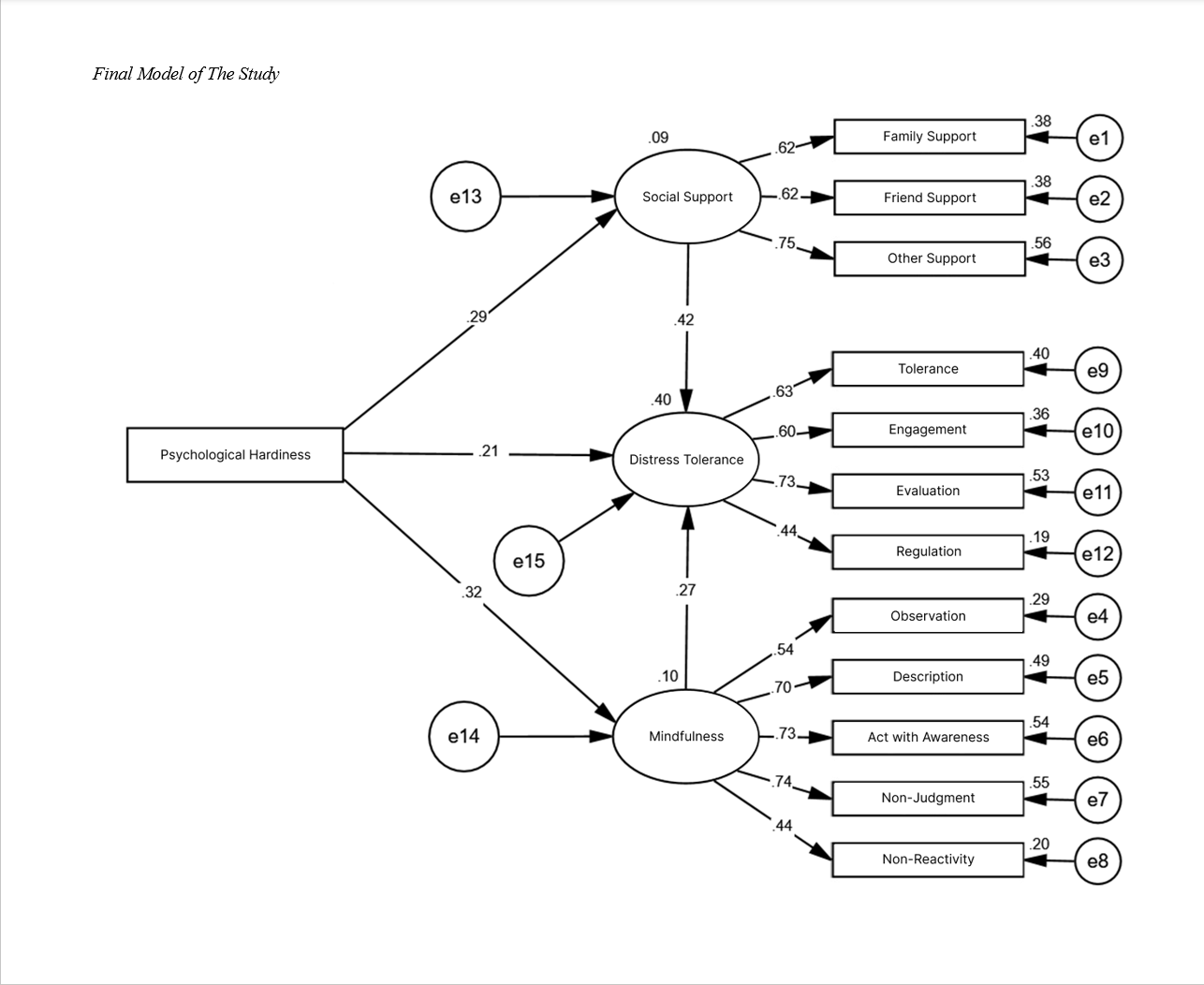The Mediating Role of Perceived Social Support and Mindfulness in the Relationship Between Psychological Hardiness and Distress Tolerance Among Students
Keywords:
Psychological Hardiness, Distress Tolerance, Mindfulness, Perceived Social Support, Structural Equation Modeling, University StudentsAbstract
Objective: This study aims to explore the mediating roles of perceived social support and mindfulness in the relationship between psychological hardiness and distress tolerance among university students.
Methods and Materials: This correlational study used structural equation modeling to examine the relationships among psychological hardiness, distress tolerance, perceived social support, and mindfulness. A sample of 332 undergraduate and graduate students was selected through convenience sampling. Data were collected using validated questionnaires, including the Psychological Hardiness Inventory, Distress Tolerance Scale, Multidimensional Scale of Perceived Social Support, and Five Facet Mindfulness Questionnaire. Statistical analyses were conducted using SPSS and AMOS software, with Maximum Likelihood estimation employed for path analysis.
Findings: Path analysis revealed significant direct and indirect relationships between psychological hardiness and distress tolerance. Psychological hardiness demonstrated a strong total effect on distress tolerance (β = 0.420, p < 0.001), with significant direct effects mediated by mindfulness (β = 0.324, p < 0.001) and perceived social support (β = 0.293, p < 0.001). Mindfulness significantly influenced distress tolerance (β = 0.273, p < 0.001), while perceived social support exhibited the strongest direct effect on distress tolerance (β = 0.418, p < 0.001). Indirect pathways further highlighted the mediating roles of mindfulness and perceived social support in enhancing the relationship between hardiness and distress tolerance.
Conclusion: The findings underscore the importance of both internal resources, such as mindfulness, and external resources, such as perceived social support, in fostering distress tolerance among students. These results suggest that interventions aimed at enhancing psychological hardiness should incorporate strategies to strengthen mindfulness practices and social support networks to effectively improve students' emotional coping capacities.
Downloads

Downloads
Additional Files
Published
Submitted
Revised
Accepted
Issue
Section
License
Copyright (c) 2024 Roya Akbari (Author); Amene Khalatbari (Corresponding Author)

This work is licensed under a Creative Commons Attribution-NonCommercial 4.0 International License.

























